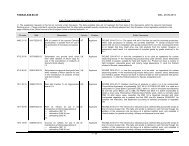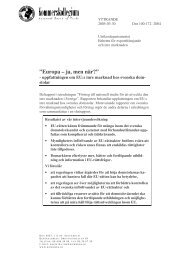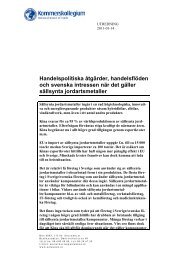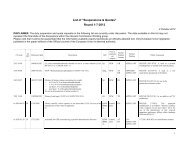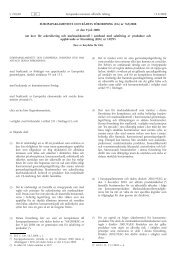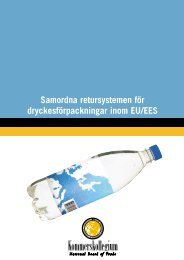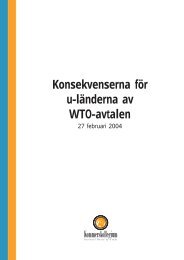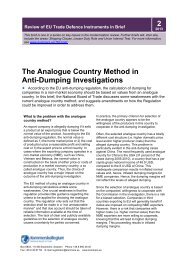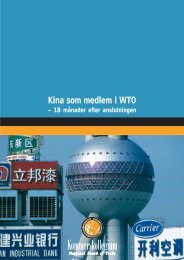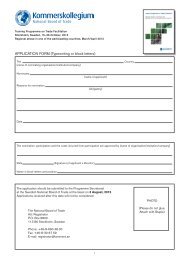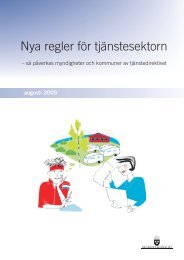Trade Facilitation - Impact and Potential Gains - Kommerskollegium
Trade Facilitation - Impact and Potential Gains - Kommerskollegium
Trade Facilitation - Impact and Potential Gains - Kommerskollegium
- No tags were found...
You also want an ePaper? Increase the reach of your titles
YUMPU automatically turns print PDFs into web optimized ePapers that Google loves.
5 <strong>Gains</strong> from <strong>Trade</strong> <strong>Facilitation</strong>Regardless of a country’s level of simplified trade procedures, there are alwaysgains to be made from further improvements. <strong>Trade</strong> facilitation is a continuousprocess that adapts to new technologies, environments <strong>and</strong> needs of the businesscommunity <strong>and</strong> governments.In order to include the experiences, actual costs <strong>and</strong> benefits from tradefacilitation, the co-operation with companies involved in international trade hasbeen essential in this study. The presented gains <strong>and</strong> arguments have beencollected both from previous studies, internationally as well as nationally, fromthe Swedish business community <strong>and</strong> from individual companies of various sizes<strong>and</strong> types, all in order to make the picture of the gains from trade facilitation ascomplete as possible.<strong>Trade</strong> facilitation is, as have been shown, very complex <strong>and</strong> includes a multitudeof variables. This is first <strong>and</strong> foremost the case when trying to aggregate <strong>and</strong> puta monetary figure on the direct gains. Simply trying to present a prototypicaltrade transaction is a task worthy Sisyphus himself. The costs <strong>and</strong> procedures of asingle trade transactions is dependent on (1) which countries <strong>and</strong> possible transitcountries that are involved (with different legislative system, dem<strong>and</strong>s, internationalagreements <strong>and</strong> processes); (2) what type of goods; (3) means of transport(air, sea, train, road or multimodal transport); (4) the human factor i.e. the errorrate, efficiency, law abidingness <strong>and</strong> skills of the involved actors in the transaction(own employees, banks, insurers, transporters, freight forwarders, Customs <strong>and</strong>other public officials, etc); <strong>and</strong> (5) the internal procedural <strong>and</strong> administrativesystem of the companies involved in a business agreement.This situation does not mean that trade facilitation in itself is either impossible ormeaningless, just that putting an aggregate figure on the gains is very difficult. Asthe presentation in chapter 3.1, proves the benefits are massive, irrespective ofhow the studies are performed. It must however be emphasised that regardless ofthe problems of numerical measurement, trade facilitation is as necessary as it isbeneficial, something that is confirmed by all international studies on tradeprocedures <strong>and</strong> which the Swedish business community unanimously supports.Many of the gains are intertwined <strong>and</strong> it is sometimes hard to pinpoint causefrom effect, but based on the inputs from both the private <strong>and</strong> the public sector,six main aspects can be found. <strong>Gains</strong> in terms of:• Transparency <strong>and</strong> Predictability• Customer Value• Time• Security• Business Opportunity• MoneyThese aspects will be presented separately <strong>and</strong> where possible also highlight themonetary cost or gains of their effects.18



